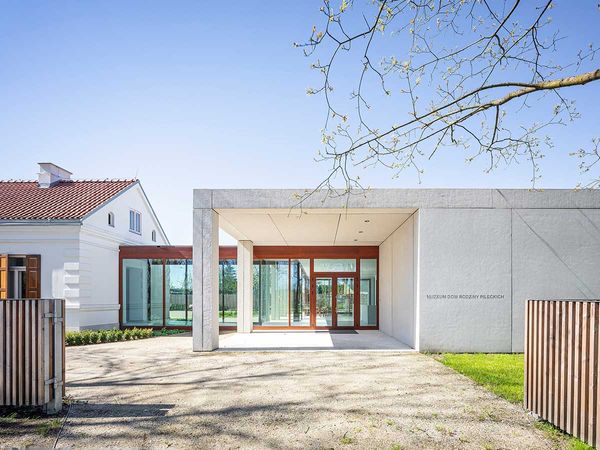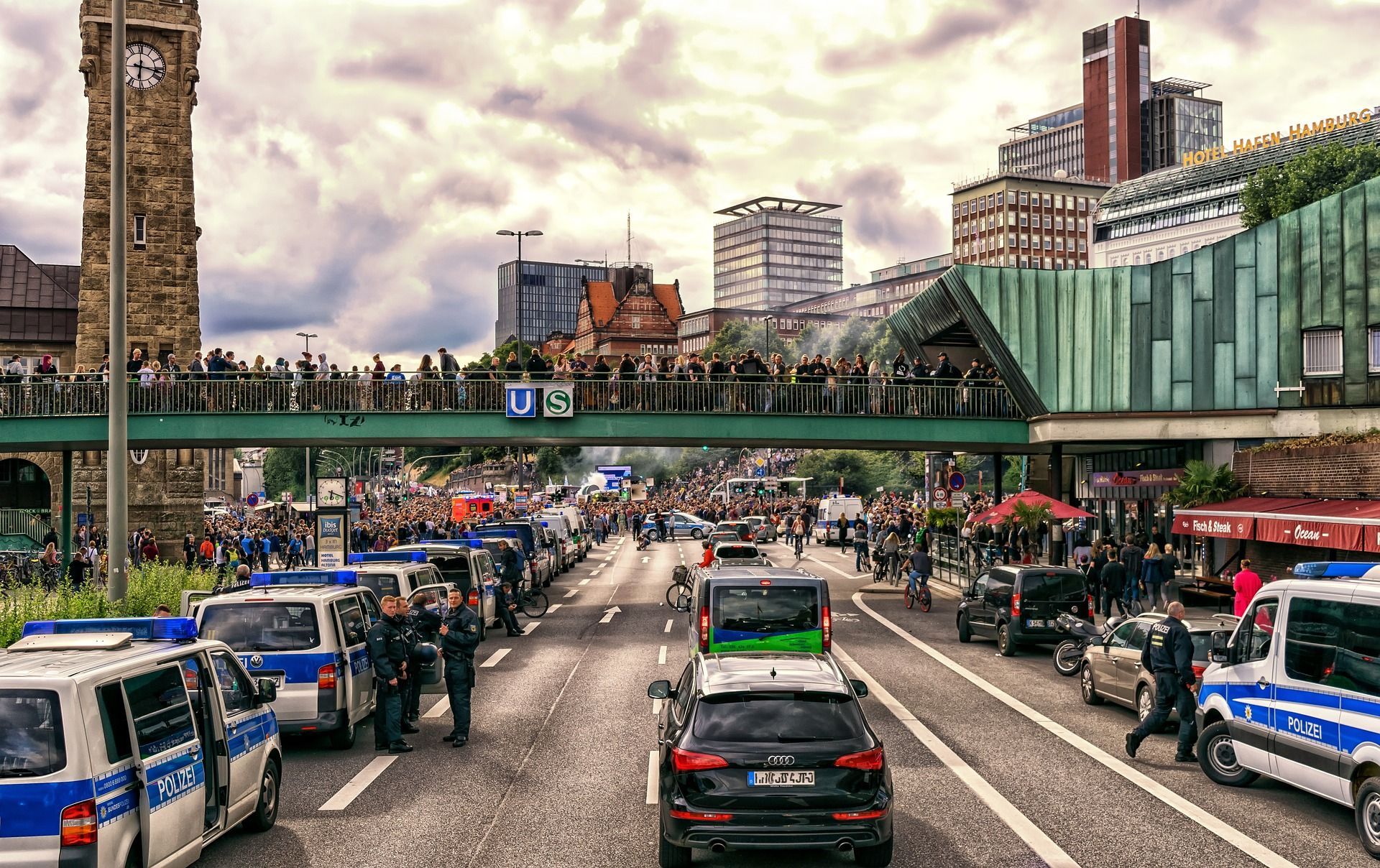The unjust Iraq War blackened the West, but the obscenity must be washed away – a panelist said at The Riga Conference 2022. Hype&Hyper’s conference coverage from Latvia.
Realpolitik partially failed when Russia launched the full-scale invasion of Ukraine on 24 February. We attended The Riga Conference 2022, where prominent experts discussed the future ahead of us. Will realpolitik or value-based politics dominate in the future?
Latvian President Egils Levits believes that value-based politics means that political objectives are based on principles and values that define domestic and foreign policies, while realpolitik means the methods to achieve these aims. „And this often compromises value-based politics,” – he added. The politician recalled that „westlessness” was the theme of the Munich Security Conference in 2020, referring to a new world order where the West gradually retreats from the global stage. Levits argued that the situation changed; the West is visible and strong now, and Australia, Japan, New Zealand, and South Korea joined the Western alliance. Nonetheless, he added that many countries are still looking for their place in international politics; thus, the West must reaffirm and clearly communicate its values. The Global South must be persuaded that the best system in international politics is if international law prevails. Levits warned that autocracy, wars, and chaos would dominate the world without international law. He added that the current challenges in the East provide opportunities for the West: globalization will not be the cornerstone of politics anymore, as, in the future, the resilience of democracies should play a key role.
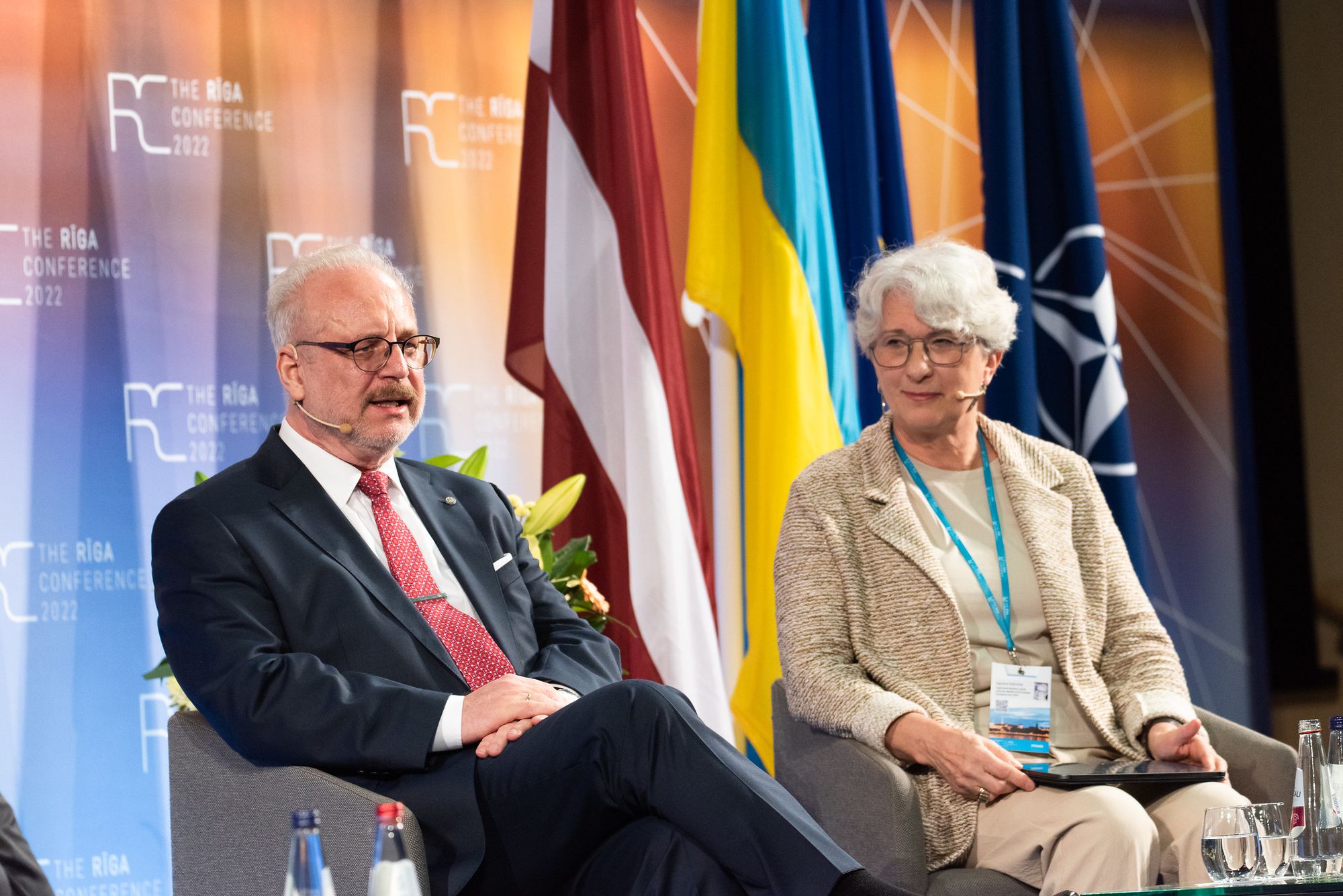
According to Dr. Christoph Heusgen, Chairman of the Munich Security Conference, many critics argue that the West has sponsored violations of international law in Iraq and Libya. So, they accuse the West of using double standards and advocate for the abolishment of the West’s current perception. The West should confront and wash away the obscenity of the Iraq War and become the guardian of international law in the future. Heusgen believes that the UN, including the Security Council, must not weaken as its work will remain crucial in the future. „The Baltic states have powerful visions and goals regarding security. And small countries are key actors in the UN and other international organizations; they are needed for the reforms, - he added.” But Heusgen also pointed out that African countries are slowing down the UN reforms due to their increasing dependency on China. It is unfortunate as Africa would gain the most from the reforms of the international order and the UN in particular.
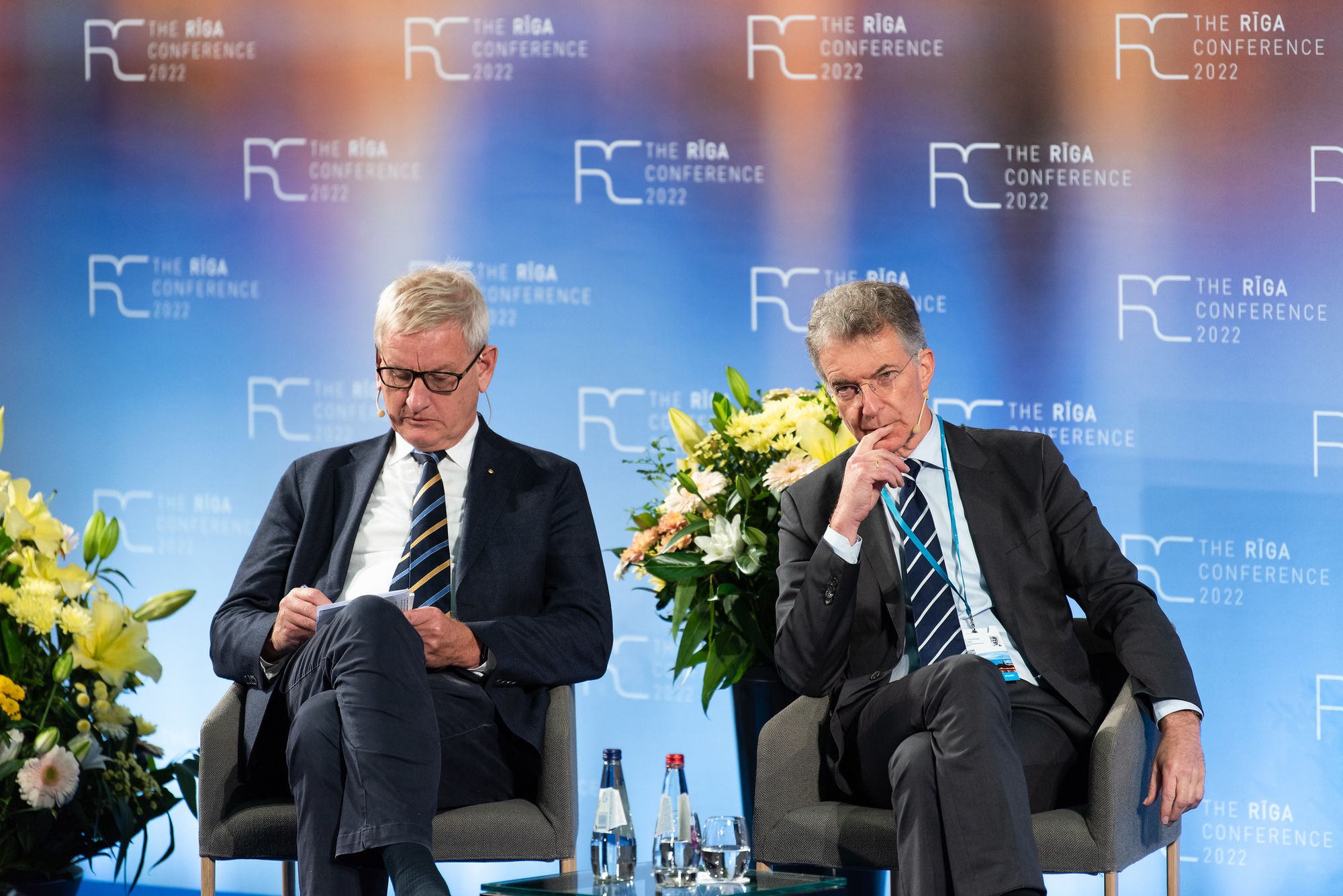
Carl Bildt, former Swedish Prime Minister and Minister for Foreign Affairs, believes that the main issue is finding the balance between the geopolitical reality and our values. He thinks the West is back in full strength, the East is in trouble, and the South is divided. Russia is clearly in trouble, but the same is true for China. Both countries are autocracies led by one person who makes bad decisions with disastrous consequences. He also highlighted the shift in Sweden’s and Finland’s foreign policy. The two countries were neutral for centuries, but first, they decided to join the EU, and now they applied for NATO membership due to the Russo-Ukrainian war. The Russian aggression is an attack on core values and fundamental interests; therefore, neutral states must choose a side in the long run. In Europe, they will choose the EU-NATO axis, concluded the Swedish politician.
The topic of the second panel we attended was the emerging challenges and threats and the resilience of NATO and the EU.
Prof. Benedetta Berti, Head of Policy Planning in the Office of the Secretary General at NATO, said that NATO had eight strategic concepts since 1948. Military objectives were the priority during the Cold War, while later, they focused on expanding the security sphere. In 2010 the threat level was still low, and the leadership of NATO thought there would be no conventional war as the relationship with Russia was normalized. „Then came the sobering up,” – Berti explained. Since 2014 the focus has been again on military goals and collective defense, including strategic planning and competition. The primary goal is to keep the peace in Europe by stabilizing the geopolitical situation. Russia is the biggest threat to peace in the Euro-Atlantic context, and now, there is absolutely no room for dialogue with Moscow. She added that China is also an emerging threat, and in 2022 NATO must keep an eye on the Asia-Pacific too. It is crucial to develop NATO’s deterrence and defense capacities. Berti also highlighted the economic dimension; the West must find a substitution for the natural resources to gain complete independence, as the exposure to the enemies must be eliminated.
Carsten Sondergaard, retired Danish Ambassador to Russia (2018-2022) and Germany (2005-2010) and former Permanent Representative to NATO, added that we need the political will to solve the challenges we face, and the key is not the strategy.
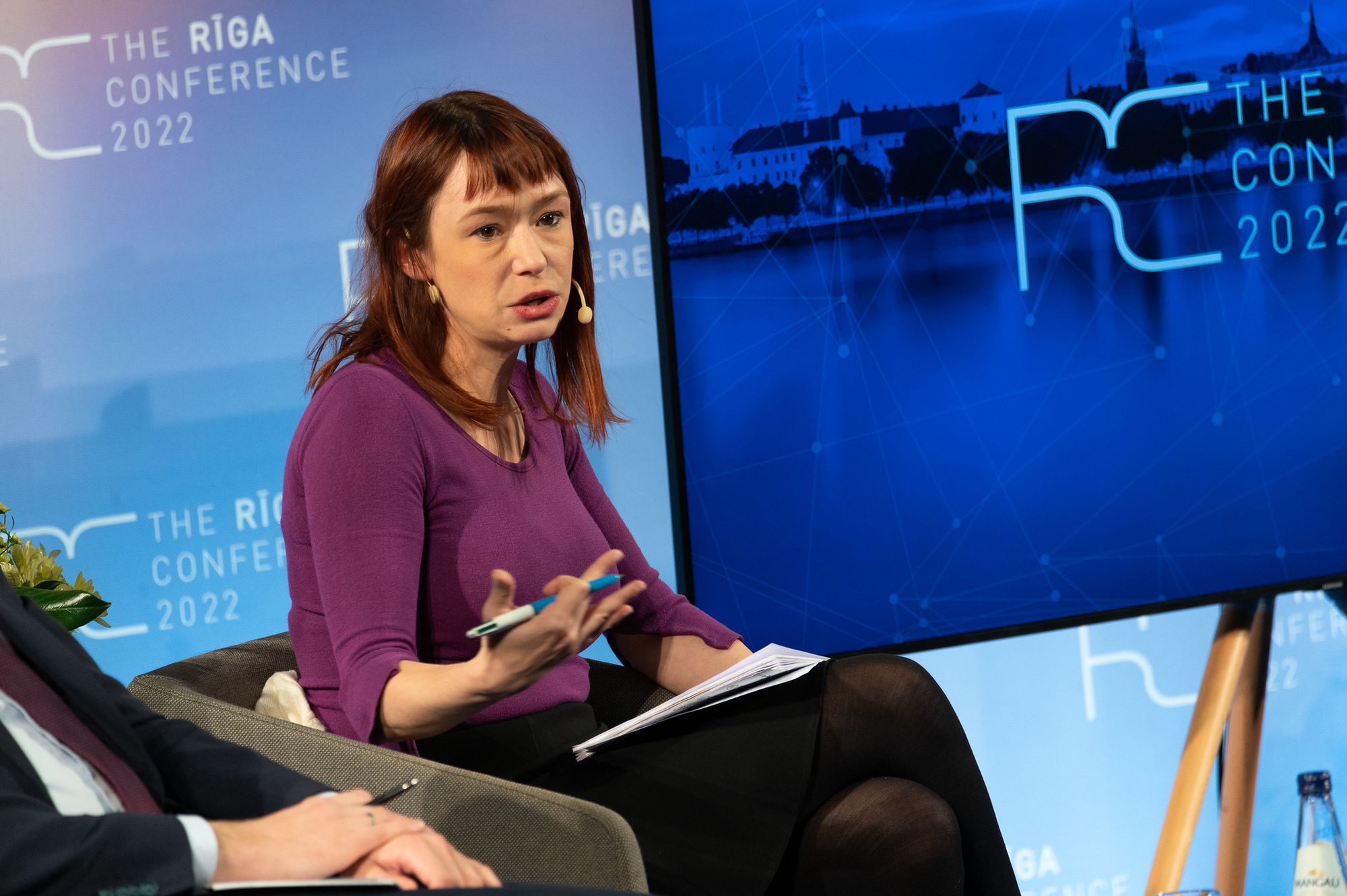
Dr. Silvia Maria Colombo, Senior Researcher and Faculty Advisor at the NATO Defense College, said that the Gulf states entered the global geopolitical stage. North Africa has already played a major role in international politics, but the Gulf countries' increasing power is dangerous as they are leading gas and oil producers. Africa remains important too, as the continent is basically a playground for the great powers, where China and Russia are steadily gaining power – Colombo concluded.
According to Nora Biteniece, Latvian strategy, and communications consultant, hybrid war is the new normal. She said that „all national decision-makers must be able to deal with crises.” Regarding disinformation, she noted that it is paramount to monitor the spread of information constantly, and we must raise the level of preparedness. Biteniece added that the parliamentary election was recently held in Latvia, and all media actors were invited to a training to prepare them for foreign intervention and information warfare. „There has been constant coordination; examples and practices were presented to the media stakeholders and regulators on how to deal with such difficult situations," – the expert said.
In cooperation with The Riga Conference 2022.
Photos in the article: Valdis Kauliņš
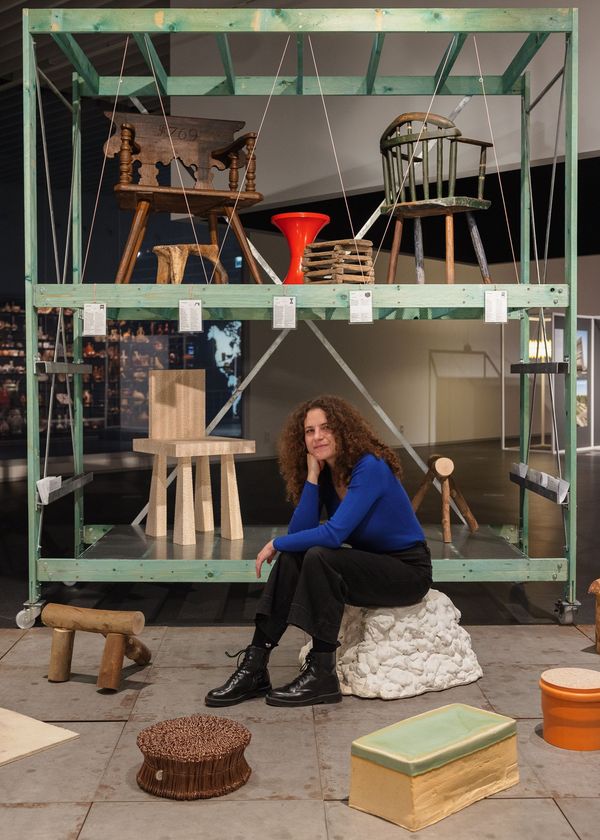
A chair is what you use as a chair | Interview with Anna Zsoldos

The current top performers of Eastern Europe | TOP5
